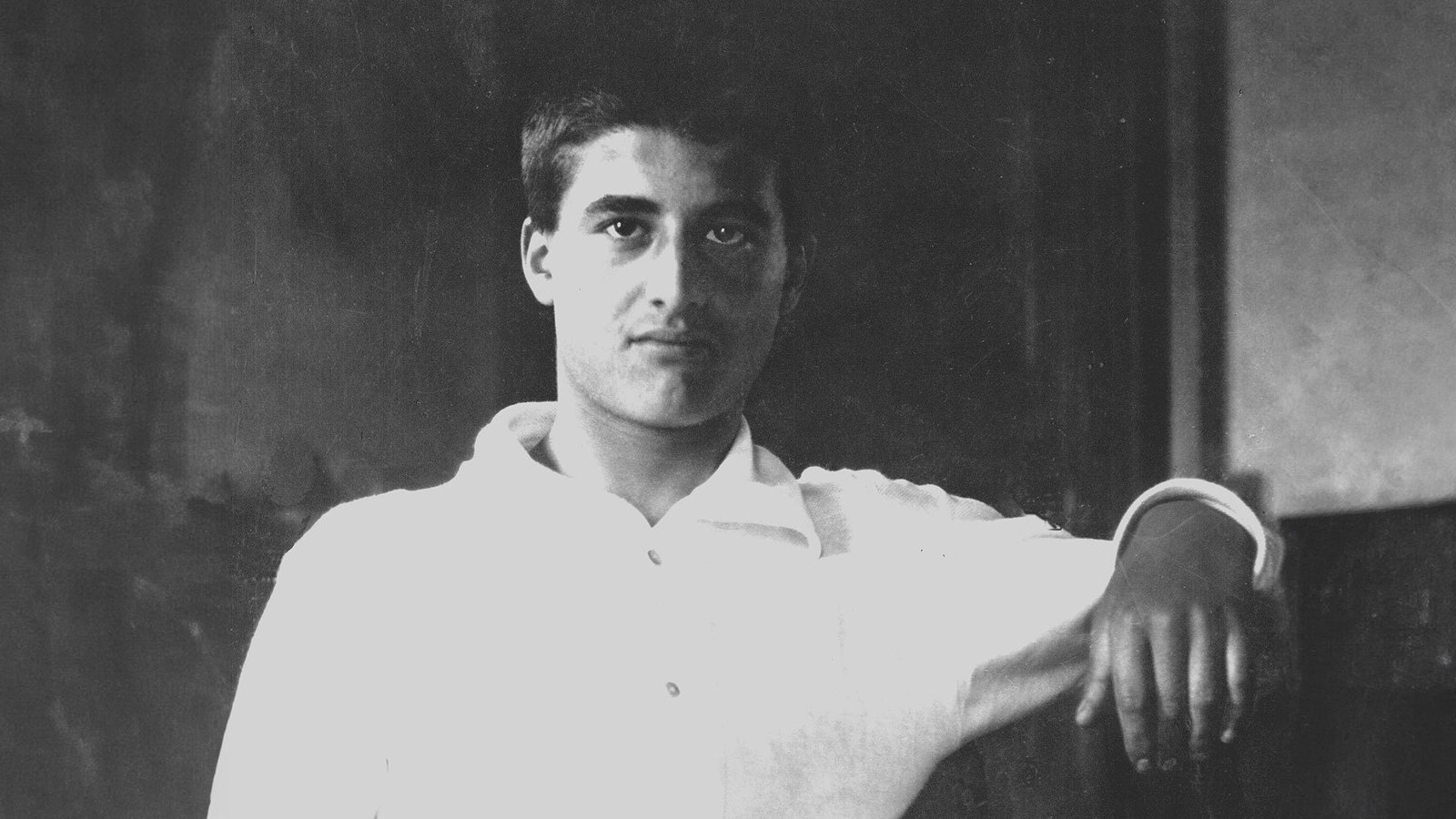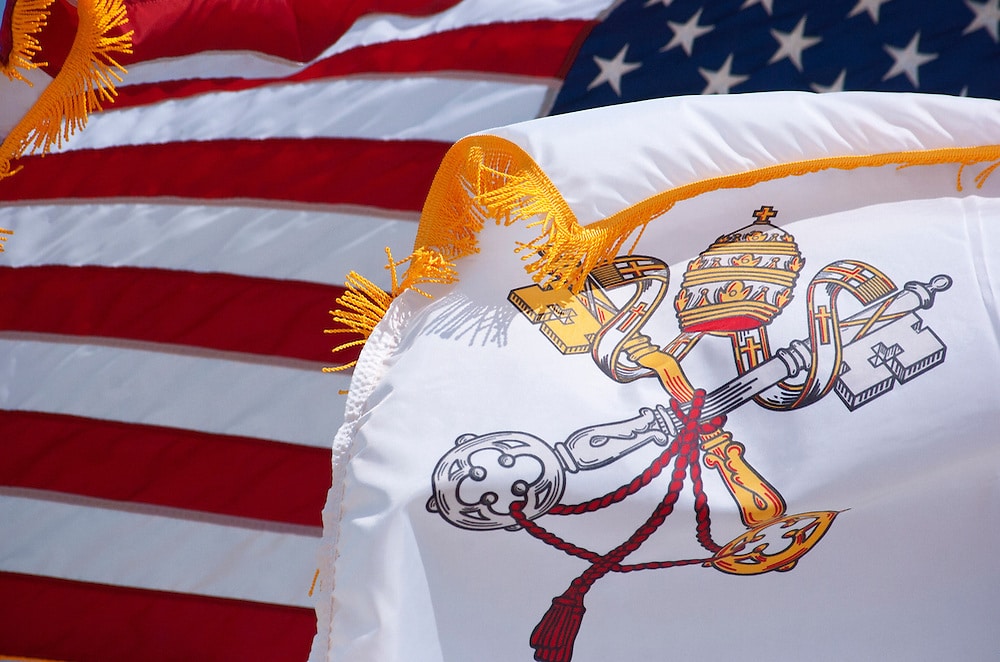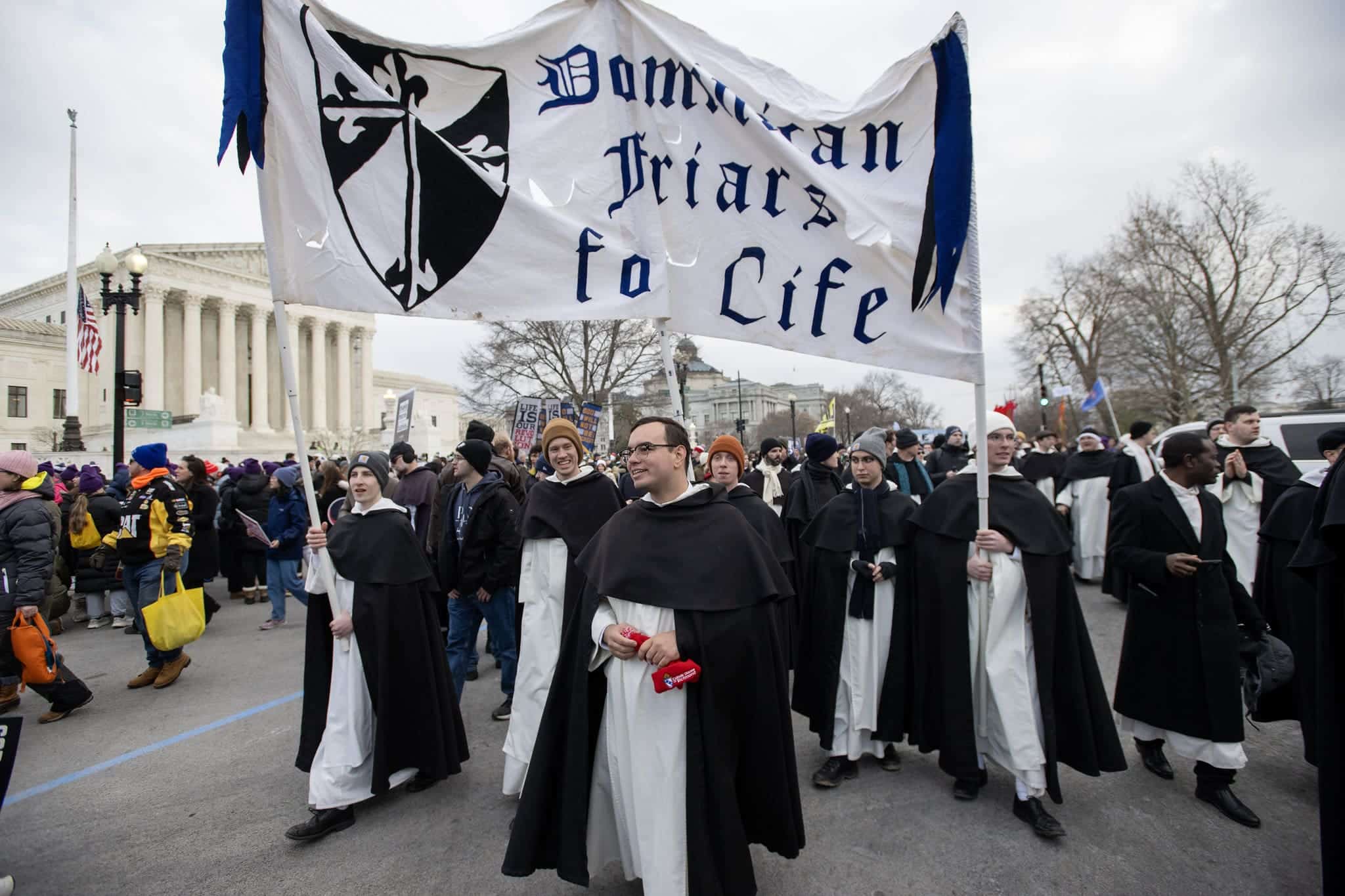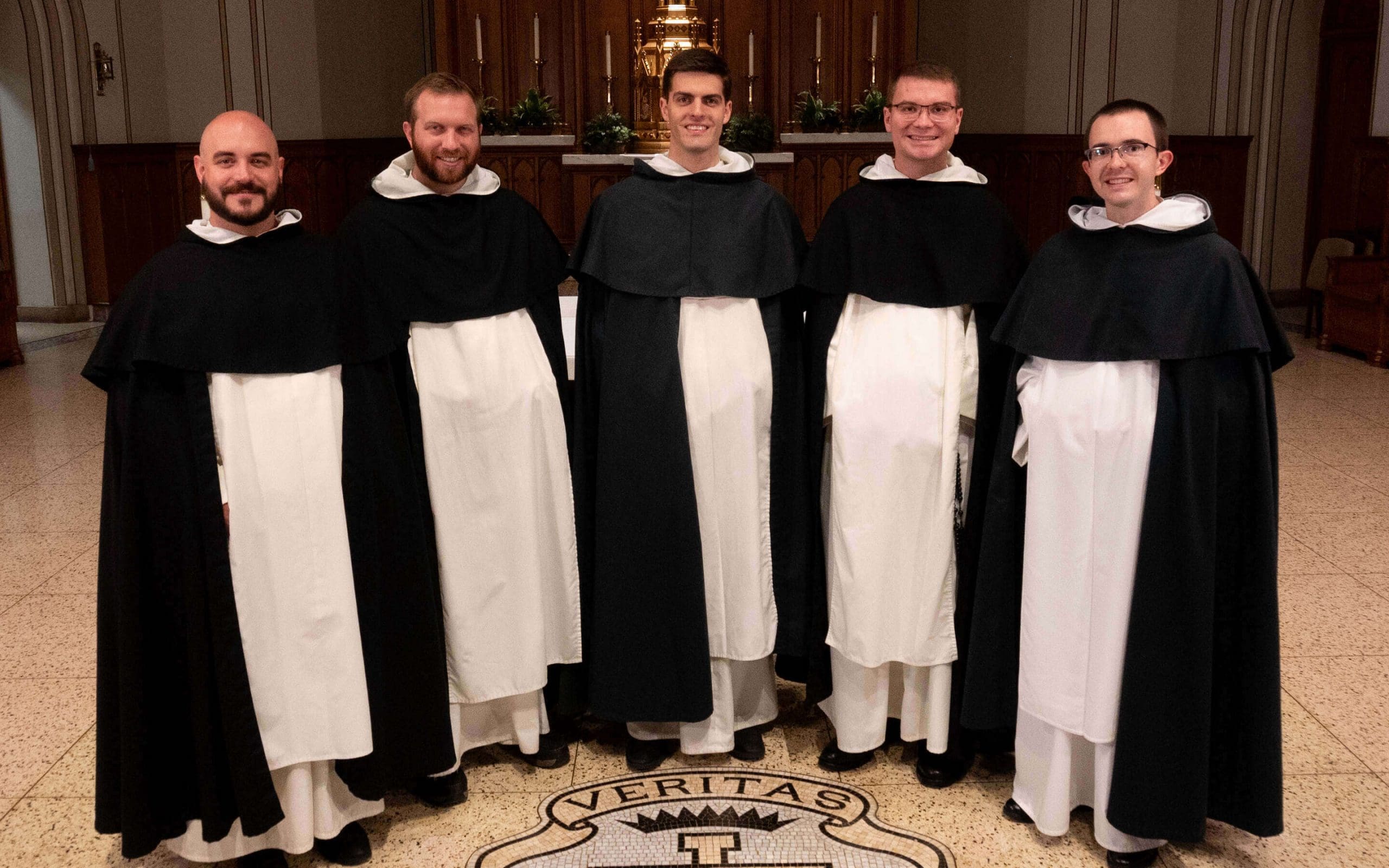
 “Holy Mother Church Asks You to Ordain These Men”
“Holy Mother Church Asks You to Ordain These Men”
By Fr. Andrew Hofer, O.P.
I was ordained a priest on May 24, 2002, at St. Dominic Church in Washington, DC. One year after I was ordained I was sent to Nairobi, Kenya, where I lived at another St. Dominic’s. The student master there, Fr. Vincent Wiseman, had been my student master for all of my years of studies in Washington. At a certain point early in formation I thought about stopping my path toward the priesthood, but God saved me from myself. I remember telling Fr. Vincent in Kenya that the best words I ever heard him say began, “Most Reverend Father, holy Mother Church….”
Those are the words to the Ordaining Prelate said during the Rite of Ordination: “Most Reverend Father, holy Mother Church asks you to ordain these men, our brothers, to the responsibility of the Priesthood.” In our Dominican province, the student master customarily addresses those words to the Bishop. I now say those words as the student master of St. Dominic Priory in Washington. This priory is the older of the two Dominican foundations of friars in the District of Columbia; it is the place we have had deacons for their final year of initial formation since 2015. In May of last year nine deacons who had been living at St. Dominic’s were ordained, and in this month we have five for ordination to the priesthood. As their student master, I have a responsibility of speaking in the name of the Church to the Bishop: “holy Mother Church asks you to ordain these men.”
After he hears the request of the Church, the Bishop asks, according to the Ritual: “Do you know them to be worthy?” That is quite a question! Those to be ordained are silent through this part of the ritual. They are not asked if they are worthy. (I certainly wasn’t asked when I was ordained twenty-two years ago.) Recall that at Mass, during the time of Communion, we say: “Lord, I am not worthy to receive you….” Who would rightly claim to be worthy to receive the Eucharist or to confect the Eucharist?
It is now my responsibility to give this testimony: “After inquiry among the Christian people and upon the recommendation of those concerned with their formation, I testify that they have been found worthy.” After many years of prayer, courses, examinations, ministries to the People of God, evaluations in formation, petitions, and finally with the vote of the house council and under obedience to the Prior Provincial whose decision on their readiness is final, these priestly candidates are now acclaimed publicly that they are worthy—due to God’s merciful grace.
The Bishop then formally chooses the candidates for ordination: “Relying on the help of the Lord God and of our Savior Jesus Christ, we choose these our brothers for the Order of the Priesthood.” After hearing this, the assembly may say “Thanks be to God” or give other means of assent, such as through applause, according to the Ritual. After this exchange between formator and Bishop, the Ordination Mass then proceeds. Teaching the necessity of the sacraments, Saint Thomas Aquinas says that the sacrament of Holy Orders is necessary for the Church, for otherwise the people would collapse. The Ordination Mass demonstrates that the Church is strong!
✠
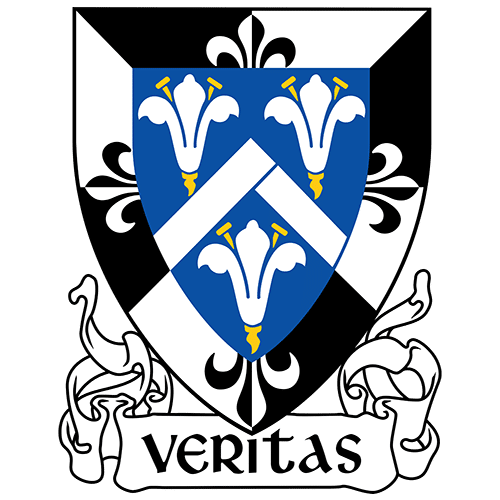

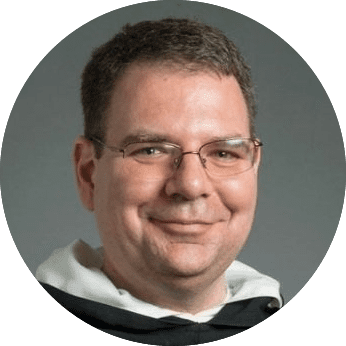 “Holy Mother Church Asks You to Ordain These Men”
“Holy Mother Church Asks You to Ordain These Men”
